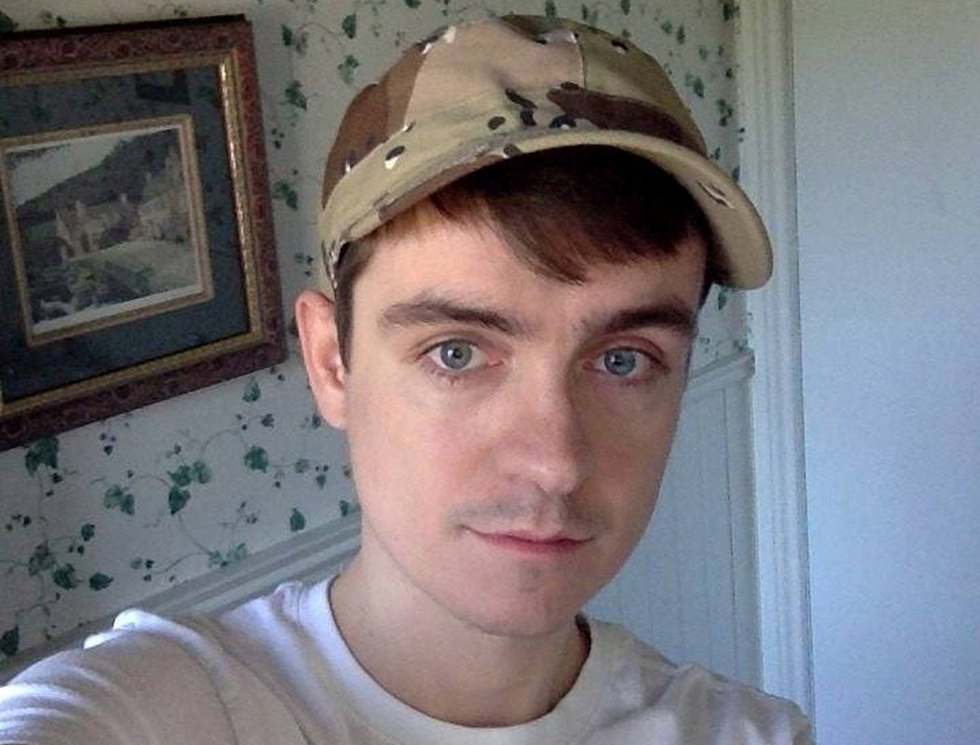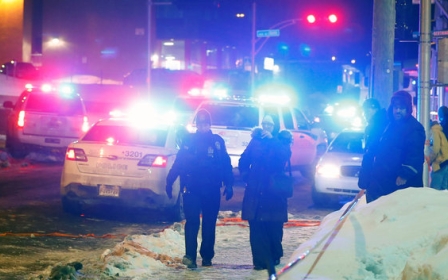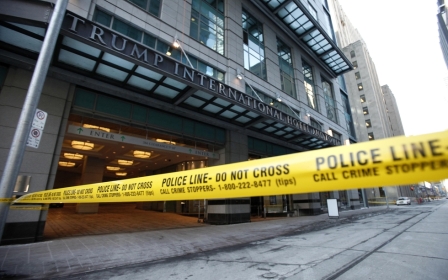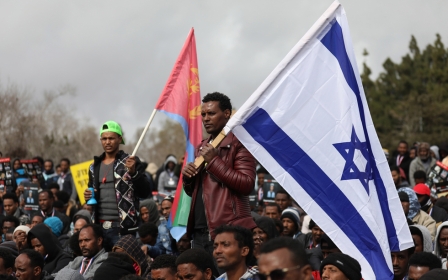Student charged with murder in Quebec mosque slayings

A Canadian political science student known to have nationalist sympathies was charged on Monday with six counts of murder over a shooting spree at a Quebec mosque - one of the worst attacks to target Muslims in a Western country.
Prime Minister Justin Trudeau condemned as a "terrorist attack" Sunday night's assault on the Islamic Cultural Centre in a busy district of Quebec City, which sent terrified worshippers fleeing barefoot in the snow.
Eight people were also wounded in the crossfire, and five of them remained in critical condition in the hospital on Monday.
Alexandre Bissonnette, who made a brief court appearance after surrendering to authorities, was charged with six counts of premeditated murder and five of attempted murder, police said.
More indictments are expected later, police added.
"There are search warrants underway," a spokeswoman for the Royal Canadian Mounted Police (RCMP) told a news conference.
"We hope to obtain the evidence to reach the point where we will be able to lay terrorism and national security charges," she said.
So far, authorities have shed no light on what may have prompted the attack.
Local media said Bissonnette is a Quebec nationalist and anti-feminist who recently "liked" US President Donald Trump's page on Facebook. He also has reportedly expressed support for French far-right politician Marine Le Pen.
Both police and witnesses had initially described two masked men opening fire inside the mosque, where worshippers were gathered for evening prayer.
But authorities later said on Monday that a second person detained had only been questioned as a witness.
Explaining why one suspect was eventually let go, the RCMP said: "This morning and last evening we had reason to believe that two individuals should be arrested, that two people had participated."
After investigating, they said: "We reached the conclusion that we should focus on one single suspect. And there was no reason to believe that the other individual had participated."
Victims are dual nationals
About 50 people were in the mosque at the time of the attack.
The dead are all dual Canadian nationals: one Moroccan, two Algerians, one Tunisian and two Guineans.
Quebec has traditionally attracted Muslim immigrants from North Africa.
Bissonnette, who is a student at Laval University, surrendered 20km outside the city after calling an emergency services hotline an hour after the attack to reveal his location.
"It is a domestic investigation at this time," Royal Canadian Mounted Police Inspector Martin Plante said.
Public safety minister Ralph Goodale said the nation's security threat level remained at medium - requiring security forces to be on guard but having no specific information about an imminent threat.
It was raised to this level in October 2014 after a lone gunman attacked parliament.
Like France, Quebec has struggled at times to reconcile its secular identity with a rising Muslim population.
Last June, a pig's head was left on the doorstep of the cultural centre.
"We are not safe here," said Mohammed Oudghiri, who normally attends prayers at the mosque in the middle-class, residential area, but did not on Sunday.
Oudghiri said he had lived in Quebec for 42 years, but was now "very worried" and thinking of moving back to Morocco.
'We are not safe here' - Mohammed Oudghiri
Mass shootings are rare in Canada, which has stricter gun laws than the United States, and news of the shooting sent shockwaves across mosques and community centres throughout the mostly French-speaking province.
"It's a sad day for all Quebecers and Canadians to see a terrorist attack happen in peaceful Quebec City," said Mohamed Yacoub, co-chairman of an Islamic community centre in a Montreal suburb.
"I hope it's an isolated incident."
Zebida Bendjeddou, who left the Quebec City mosque earlier on Sunday evening, said the centre had received threats.
"In June, they'd put a pig's head in front of the mosque. But we thought: 'Oh, they're isolated events.' We didn't take it seriously. But tonight, those isolated events, they take on a different scope," she said.
Bendjeddou said she had not confirmed the names of those killed, but added: "They're people we know, for sure. People we knew since they were little kids."
Middle East Eye propose une couverture et une analyse indépendantes et incomparables du Moyen-Orient, de l’Afrique du Nord et d’autres régions du monde. Pour en savoir plus sur la reprise de ce contenu et les frais qui s’appliquent, veuillez remplir ce formulaire [en anglais]. Pour en savoir plus sur MEE, cliquez ici [en anglais].




